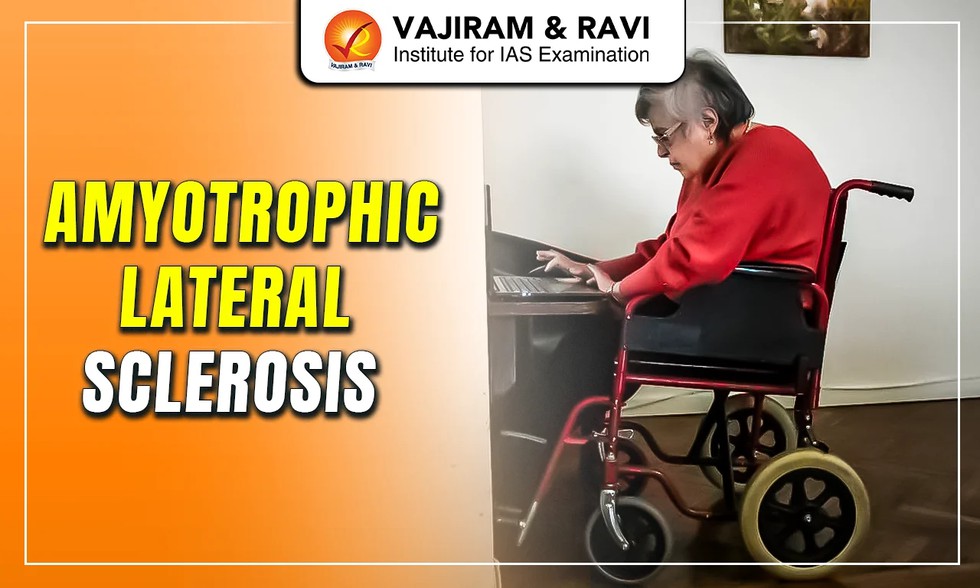About Amyotrophic Lateral Sclerosis:
- It is also known as Lou Gehrig’s disease. It is a progressive neurological disorder that affects muscle movement.
- It can occur at any age but symptoms commonly develop between the age of 55 and 75. The men are more likely to develop the condition.
- Causes: In few people with ALS, a genetic cause can be identified.
- How does ALS affect the body?
- In people with ALS, the motor neurons degenerate and die and messages sent by the brain do not reach the muscles which results into muscles atrophy (lose strength and become weak).
- Eventually, the brain loses control over voluntary movements including walking, chewing and even breathing, as the condition progresses.
- Symptoms and progression of ALS:
- It includes muscle twitches in the arms, leg, shoulders or tongue; muscle cramps;
- Tightness or stiffness of muscles; muscle weakness in a limb or the neck; and difficulty in chewing or swallowing.
- Treatment for Amyotrophic Lateral Sclerosis:
- There is no treatment to reverse nerve degeneration, but some therapy may help to delay progression.
- A treatment would include physical, occupational and speech therapy to improve quality of life.
